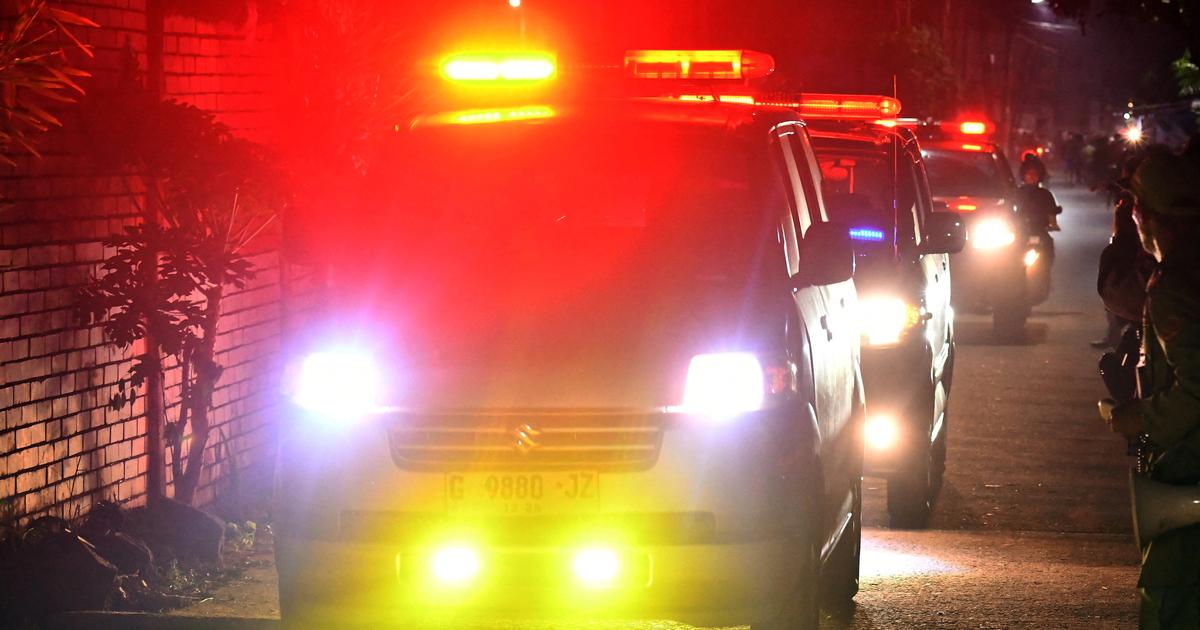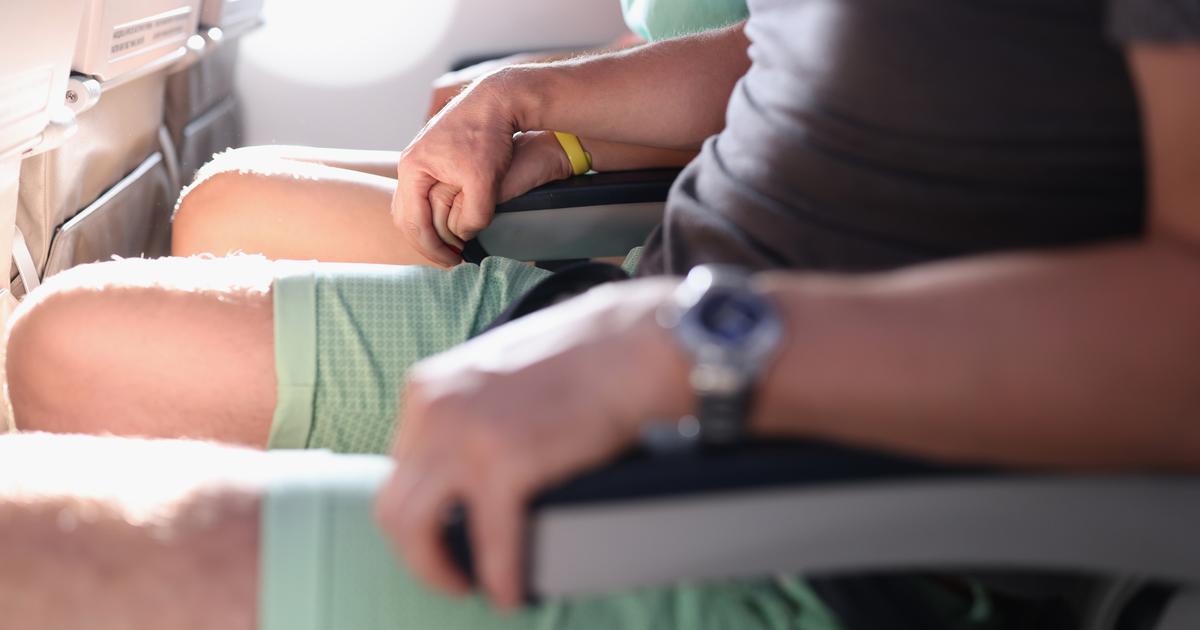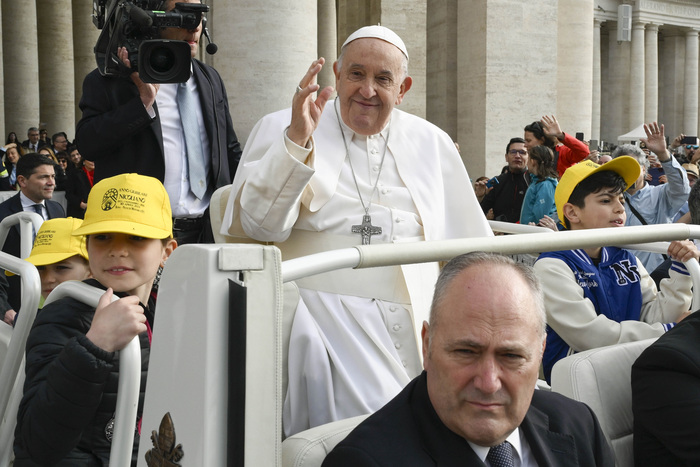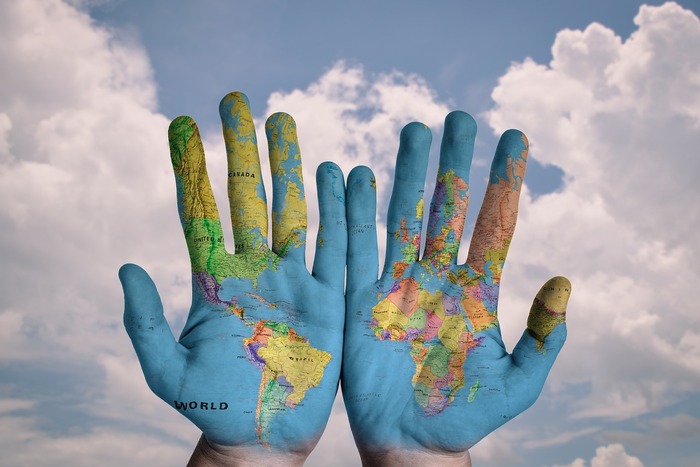In a Washington garden, a granddaughter watches some "bloody petunias" bloom, the last ones her grandfather planted.
In a room in Seville, parents have a blank look at their son's comic collection.
In Jakarta a woman has not yet been able to visit her husband's grave.
Miles away, in all corners of the world, widows and widowers, brothers, orphans share the same pain.
One million families add to the absence of their loved ones not having been able to say goodbye to them.
Special: One million dead
In less than nine months, the covid-19 pandemic has reached a symbolic death toll in the world that will continue to grow as long as science does not find an effective vaccine
SENEGAL
"My wife spent her last night on a mattress thrown in a waiting room"
ASSANE SECK |
His wife Marie Ba, 53, passed away in Dakar in May
What hurts 62-year-old Assane Seck the most is not being able to bury his wife as God intended.
Still today, four months later, she shuffles around her home in Dieppeul, in the heart of the Senegalese city of Dakar, with the painful feeling of having left something undone and unable to go back to correct it.
“They denied us access to her body and now it is there, in her grave, without our being able to wash and prepare it.
We are Muslims, it is something very important to us, ”she says, raising her voice over the murmur of her sisters-in-law doing laundry in the yard while the children play in the puddles.
Marie Ba was his wife for 24 years.
They had three children and a granddaughter.
“It was an agreed marriage, she was my niece.
This is how the family arranged it and we accepted it.
She proved to be an exceptional, understanding and religious woman and mother.
When I wasn't doing housework, I prayed, ”says this retired dockworker.
In the early days of Ramadan, 53-year-old Marie began to suffer from severe pain in her belly.
“I told him to break the fast.
Two days later I took her to the hospital.
It was Saturday, May 9, ”Seck recalls.
Since there were no free beds, she spent the whole day sitting in a wheelchair.
Her husband was going to buy her the painkillers and the doctor administered them into her vein.
No fever, no cough, no muscle pain, just that intense and constant discomfort in the stomach.
“I bought her a mattress, threw it on the floor and she spent her last night there.
It was a kind of waiting room.
We were talking, I saw how he suffered.
At six in the morning she fell asleep for an hour and, shortly after waking up, she died ”.
Not even eight hours had passed and Marie Ba's name and neighborhood were already circulating on social media.
It was the nineteenth death from coronavirus in Senegal.
"Before others rejected us, we decided to confine ourselves and quarantine at home," adds her widower, aware of the stigma with which those who have suffered this disease are punished.
Assane Seck accepted her fate, but when they told her it was covid-19, she did not believe it.
"She had a problem with one leg and did not go out into the street, how was she going to get it?"
Of the 18 members of the family who live together, only he tested positive.
He was admitted to a suburban hospital without symptoms.
She still doesn't quite believe it.
In a country of 16 million inhabitants with less than 15,000 infected and just 300 deaths, many doubt like Seck.
“I miss her, but even the children have accepted it.
God wanted it that way.
Now we try not to talk much about it. "
His 15-month-old granddaughter Siga sits on his lap.
Life goes on in Dieppeul.
USA
"The origin of my pain is literally everywhere"
KRYSTEL ANDERSON |
His grandfather, Alexander Boyle, 76, passed away in Washington in May.
The most vivid memory Krystle Anderson, 34, has of the day her grandfather died is her mother's screaming for Zoom begging for someone to hold her hand.
Alexander Boyle, 76, was alone with medical staff when he passed away from coronavirus in Washington on May 6.
A nurse took her hand.
Per hospital protocol, no family member could be present.
Anderson had a close relationship with his "dad," as he affectionately called him.
When her husband was posted to Afghanistan, and then to Iraq, she was pregnant both times.
Boyle was in charge of accompanying her and took care of her when she gave birth.
It was her "stabilizing force" in moments of madness, like now.
No one knows for sure how it was infected.
After being locked up at home for two months, he went out to buy flowers to plant them and have a household chore.
Within days, Boyle, and her partner, Viktor, tested positive for COVID-19.
"Damn petunias," Krystle mutters, next to the pot with the already flowered seeds, outside his grandfather's house.
The family realized something was wrong because Boyle, a former member of the Senate Democratic campaign committee, posted messages against President Donald Trump every morning.
But that day in early May there was no activity on their social networks.
No one could contact him so the police raided the house.
He was lying on the ground.
His partner was out of town.
Already in the hospital, there were moments in which he showed signs of improvement, but they faded as well as his lucidity.
He did not want to be connected to a ventilator, since given his medical preconditions there was a risk that he would die when intubated or extubated.
Within a week, he passed away.
Krystle states that it is very difficult to go through this moment when the memory of your pain is everywhere.
"We wear masks because of the disease that killed my grandfather, we maintain social distance because of that, my children learn from home because of the same," he enumerates.
"We literally have no escape, we are stuck in a limbo of constant pain."
Boyle enjoyed life.
He liked traveling, gambling, and people.
His family has not been able to hold a ceremony in his honor due to the pandemic, but they plan to meet in December in Washington and take a
tour
of their favorite bars.
Afterward, they will scatter their ashes down the Potomac River.
He was a lover of the capital.
He went to all the presidential inaugurations.
From 1965 to 2012. When Trump took office, he abandoned tradition.
MEXICO
"It never crossed my mind that it was covid"
DIEGO VILLEGAS |
His wife Adriana Pérez, 43, and his sister-in-law died in Mexico City in May
In Iztapalapa, a popular neighborhood in Mexico City, the epicenter of the covid in the Latin American country, and perhaps in almost the entire subcontinent, many neighbors doubted that the coronavirus existed.
That pandemic that came from Europe or the United States was not something to worry about, even more so, they, who practically have to survive on a daily basis ... The family of Adriana and Guadalupe Pérez Lázaro, aged 43 and 38, exemplified it.
They all share a property in a humble area of the neighborhood.
They all got it.
Diego Villegas, Adriana's husband, remembers that at first his wife's symptoms were the same as "any flu".
She, however, did not improve with the days.
They visited one doctor, another.
Up to three received it, in what for him is an example of reluctance and lack of preparation.
His wife woke up well and when it seemed that he was going out, he would relapse again.
"It never crossed my mind that it was covid," he recalls, although by then, at the end of May, the pandemic was widespread throughout the world and widely in Mexico.
The North American country is the fourth in number of deaths, although per million inhabitants the figures give a respite.
The official numbers, of course, since the excess of deaths is almost three times what the statistics mark.
Adriana's deterioration was more and more evident.
They recommended that he get some oxygen, but Darío couldn't.
He searched, in pharmacies, on the Internet, "even if it was a small tank", but there was no way.
His wife got worse and worse, she didn't have the strength to get up, she took a step and felt exhausted.
"A very exaggerated fatigue."
Like so many, Diego and Adriana heeded the recommendations of the authorities, where the "stay at home" was applied to the last consequences, especially in a country where people are not used to going to the doctor.
Adriana passed away during the transfer to the hospital, where her sister, Guadalupe, died shortly after.
Both were cremated.
His ashes are on an altar in the main courtyard of the house.
They could not be buried in Puebla, where they came from and where their father is buried.
Diego's drama did not stop there.
After his wife died, he had to face rumors and complaints from his neighbors: since Adriana died of suffocation, they accused him of having killed her.
ISRAEL
"We fired him inside an ambulance, we were all infected"
RACHEL HEBER |
Her husband, Rabbi Abraham Yeshayahu Heber, 55, passed away in Jerusalem in April
“Life without him is another life.
It was the greatest gift I received from God ”.
Rachel Heber's grief has not ceased for six months, when the coronavirus took her husband, Rabbi Abraham Yeshayahu Heber, at 55 years old.
Faced with the large library of religious texts that he has bequeathed her, she struggles not to collapse.
The plague has hit the ultra-Orthodox community in Israel.
“What we started together to give people hope continues;
life goes on ”, she replies, covered in a smile that helps her contain her emotion.
Born in Jerusalem 53 years ago, trained as a teacher in Chicago, Rachel Heber founded with her husband in 2007 Matnat Chaim (Gift of Life), a center that coordinates the altruistic donation of kidneys.
Rabbi Heber - a recognized figure in Hebrew society for his humanitarian work - went into isolation in early March.
As a recipient of a kidney transplant he was taking immunosuppressants.
"We don't know how he got it, but we all ended up infected," says his widow in the family home in Har Nof, a Hasidic district in Jerusalem.
"The doctors prescribed us antibiotics and recommended that we stay at home."
On April 13, when he began to have breathing difficulties, he was transferred to the Hadashah hospital in Ein Keren (outside Jerusalem).
"He remained in intensive care, sometimes accompanied by a kidney donor through our organization," recalls his widow.
"Ten days later, after an apparent improvement that disconnected him from the ventilator, we lost him."
“We were all in isolation: my 16-year-old daughter, my oldest son and my daughter-in-law.
We couldn't say goodbye to him, ”his smile darkens.
"We had to fire him from inside an ambulance."
The body carried on a stretcher by health workers wearing protective suits surrounded the vehicle in a funeral procession.
Israel now has one of the highest rates of covid-19 infection in the world, 531 per million inhabitants in seven days, although it has only registered 1,412 deaths since March among its 9.2 million inhabitants.
The Arab (20% of the population) and ultra-Orthodox (12%) minorities, the most disadvantaged on the social scale, account for about half of the cases.
“It is a terrible disease.
He would not let me accompany him to the cemetery;
Nor did the family receive the traditional shiva [Jewish week of mourning and mourning] condolences at home, ”laments Rachel Heber.
“Although my daughter lost her father, he continues to be with us in our hearts.
We talk a lot about him ”.
ITALY
“I only had them and I have lost them without an explanation.
We were abandoned "
CATERINA DE LUCÍA |
Her parents, aged 75 and 76, died in March and April in Brescia (Italy)
The first wave, unexpected and wild, was the most cruel.
Caterina de Lucía, a 50-year-old from Neapolitan, moved to Brescia (Lombardy) in 1994. In the south there was a lack of work, paid little and used to be in black.
He got a good job at a hospital in the north.
Four years later her parents accompanied her, a journey in search of prosperity.
"And look ... I would give anything to go back and never have moved from Naples."
Brescia, along with Bergamo, was the area hardest hit by the coronavirus in Italy.
The European region where excess deaths were highest in the first wave.
Caterina's parents died here just 23 days apart.
The mother was 75 years old.
His father turned 76 in the hospital.
On February 20, Italy detected the first case.
It was in Codogno, a small Lombard town confined the next day along with 10 other municipalities in the area.
Brescia continued to function with a certain normality.
"It was already known, but here they did not take the appropriate measures," laments Caterina.
His mother started with a fever and cough on February 26;
his father, three days later.
The doctor prescribed paracetamol and rest at home.
There were no tests, no protocols: it was the prehistory of the pandemic.
“I called the doctor because I saw them very bad.
She told me that I was too scared, that I was watching television and they had put the COVID thing into my head.
He called me an "alarmist", told me to stop watching the news.
I replied that I knew my parents and that they were not well.
But he ignored me ”.
On March 5, after a hellish night, both with a high fever and in the same house as her two children and her husband, Caterina decided to take them to the hospital in her own car.
At 5:15 p.m. they entered the medical center, but they no longer came out alive.
“They called me at midnight, my father had had a cardiac arrest and was intubated.
The day after they still didn't know if it was positive.
They gave him morphine and he went into a pharmacological coma ”.
The mother died on March 8 unexpectedly by the doctors.
“My husband started to have a fever but no one came to see him.
They did not test him.
My mother has just died, my father was resuscitating, my husband in an isolated room and I with the two children ”.
On April 1, he had to say goodbye to his father without being able to see him.
Caterina's husband survived.
But she cannot find the way to overcome the trauma.
“It is impossible to get ahead mentally.
Every day I put on a mask and pretend to be alive.
But something has died inside of me.
Every morning I ask myself the same questions: where did they get infected?
What really happened?
I am left alone, I am an only child.
I only had them and I have lost them without anyone giving me an explanation.
We were abandoned ”.
He knows that a million people have been through something similar.
Talking to them, only sometimes, calms the pain.
SPAIN
"When he died in the ICU we did not speak or move for an hour"
JUAN ANTONIO DUTOIT |
His son, Juan Carlos Dutoit, 38, died in Seville in April
The old room of Juan Carlos Dutoit preserves intact the witness of his two passions: collections and volleyball.
Dozens of comics, two
Star Wars lightsabers
and perfectly classified 'GI Joe' figures are mixed with footballs and trophies.
"Sometimes she even kept the chewing gum papers," jokes her mother, Carlota, between a smile and a lost look as she shows the room.
Dutoit, a 38-year-old computer scientist and coach of a women's team in Dos Hermanas, died in mid-April in a hospital in Seville after catching the coronavirus.
Neither Carlota Carmona, 67, nor her husband could say goodbye to the eldest of their two children, who had no previous pathologies.
After a few days sick at home, he spent 14 days in hospital, most of the time in very serious condition.
Dutoit had left the family home a couple of years ago.
He had finally gotten a good job as a computer scientist and was happy with Rocío, his partner, with whom he wanted to start a family.
“She was the love of my life.
Now I would be pregnant ”, Rocío tells by phone through tears.
She accompanied him on his last days in the apartment they shared, treating him according to telephone medical prescriptions until he had no choice but to ask for urgent help.
He was taken by ambulance to the hospital on Friday night in Dolores.
"The day after entering was tremendous, neither picked up the phone nor had he called us, we found a situation that I do not wish anyone," says Juan Antonio Dutoit, 64, in the living room of his house.
During the confinement, Juan Antonio was the spokesman for the family even if it “weighed” him, and he informed his son's brother and girlfriend by video call of his state of health thanks to the two daily calls he received from the hospital.
The last one arrived outside normal hours: her son died at night in the ICU due to multi-organ failure.
"We did not speak or move for an hour," says the father.
Then would come the cremation and a goodbye from just three people, which Juan Antonio appreciates in a way.
“I was not there to shake hands with everyone.
The duel has been very difficult because we are surrounded by this [pandemic].
It is proving very hard, this has not been over and it will not be over for a long time ”, this father says with striking integrity.
BRAZIL
"What hurts me the most is not being able to say goodbye"
GABRIEL ERICK DOS SANTOS |
Her sister, Erika Regina Leandro dos Santos, passed away at the age of 39, in São Paulo, in April
When Gabriel Erick dos Santos, a 24-year-old Brazilian, woke up in a hospital after nearly drowning in early 2019, the first thing he saw was the smile of his sister, Erika Regina Leandro dos Santos, and the first thing he heard was her laughter.
When Erika was admitted at the beginning of last April to a hospital in São Paulo, where they live, Gabriel no longer saw her again.
At age 39, Erika was one of the first fatalities of covid-19 in Brazil.
“What hurts me the most is not being able to be by her side or say goodbye to her,” laments this musician and English teacher at his home, simple and little furnished, on the outskirts of the main Brazilian city.
Erika, an actress who also worked as an administrator in a bank to make ends meet, lived with several health problems: overweight, diabetes, hypertension ... She went to the doctor a lot - she suffered a stroke last year - but always recovered.
So when he said that he had taken a 10-day sick leave because he was not feeling well, his six brothers thought that this time it would be no different.
"My sister lived life as if she was never going to die," Gabriel recalls, with a smile.
She shows the last message she wrote to her when she said she was going to the hospital on her mobile: "Let me know when you leave and call me."
They never spoke again.
Upon arrival at the hospital, Erika had to be admitted to the ICU.
In the following five days, her relatives only found out about her through a doctor who sent messages or called every day, at seven in the afternoon.
Until the worst came, a brutal loss.
Her brothers say that Erika was the one who kept their family together.
"Our parents died when I was little, we had a great friendship, but she was also like my mother, she was the one who raised me," says Gabriel.
She had many friends, “it was very easy to get close to her and get fond of her”.
Gabriel's most terrible memory is the funeral.
With just six people and a short prayer, while the cemetery workers rushed them.
"I couldn't even hang a necklace with his name engraved on the coffin, a family memory."
In the living room of his house Gabriel takes out the black and dusty guitar that his sister gave him when he was 15 years old.
“She pushed me to compose music and to play.
She asked a friend for a loan to give me that gift, we were the two artists in the family ”, she laughs.
They planned to get the same tattoo from the album
There's Nothing Left to Lose
, by Foo Fighters, Erika's favorite.
Now, Gabriel will do it as a tribute to his sister.
Gabriel feels neither fear nor anger at the situation of the pandemic in Brazil, where there are more than 4.6 million infected and more than 140,000 deaths.
“Nobody knows very well what to do, but we have to think about our neighbor beyond not infecting them, think about how to treat them with respect and humanity.
It's what my sister would have liked ”.
INDONESIA
"We have not gone to the cemetery yet, it is dangerous, there are still many cases"
INDRA DEWI |
Her husband, Harry Santoso, 54, passed away in March in Jakarta
Although half a year has passed since her husband's death, Indra Dewi has not yet been able to visit his grave.
Harry Santoso was one of the first 100 cases of covid-19 detected in Indonesia, which by March was just beginning to come into contact with the disease.
The diagnosis came after the man, who was 54, spent five nights in a Jakarta hospital, suffering from excruciating shortness of breath, fever and nausea.
Just hours after receiving the positive confirmation, Santoso passed away.
"The hardest part was not being able to be with her when she died, and that we could not bury her or hold a funeral," she says from the Indonesian capital Dewi.
Neither she nor her children, Jessi Renata and Jeffrey Renardi, have yet been able to go to the place where Santoso was buried, a cemetery dedicated exclusively to those who died from Covid-19.
"It is dangerous to go, there are still many cases ...", warns Dewi.
More than many;
Indonesia has been breaking infection records for days, with around 4,000 new infections detected every day, increasing the total number of infections soaring, which exceeds 260,000.
The vast Asian archipelago, the fourth most populous nation on the planet with nearly 270 million inhabitants, has the highest number of deaths in Southeast Asia.
More than 10,000 people have died since March.
At that time, "there were hardly any tests" in Indonesia, says Dewi, "many may have died of covid-19 without knowing it."
In Santoso's case, Dewi's two medical brothers advised them to go to the hospital when they saw that he was not recovering from what they had initially believed to be a cold.
Santoso, who ran a seafood restaurant with his wife, continued with his routine until his strength failed him.
On the 21st, he was admitted, and no family member was able to see him again.
"At first he communicated by WhatsApp, but at the end he was very weak ... The nurses or doctors had to call us to see him," the woman recalls.
Five days later, on March 26, Santoso passed away.
Dewi was able to see the lifeless body of her husband for the last time through a screen, a farewell difficult to assimilate after almost twenty years of marriage.
Dewi, of Chinese origin and a Christian like her husband, needs to visit his grave and hold a funeral to grieve.
Something that does not seem possible yet, with Jakarta entering its second partial confinement in the face of the pandemic, which has exposed the deficiencies of the Indonesian health system (according to the World Health Organization, the country only has six hospital beds per every 10,000 inhabitants, less than half of Japan, which leads the
world
ranking
with more than 13).
"We think that the pandemic would end a few months after the death of my husband, but it seems that it will not be until 2021 when we can finally visit him and give him a dignified ceremony and funeral," he laments.
With information from
José Naranjo
(Dakar),
Antonia Laborde
(Washington),
Héctor Guerrero
(Mexico City),
Juan Carlos Sanz
(Jerusalem),
Virginia Martínez
(Seville),
Daniel Verdú
(Rome),
Joana Oliveira
(São Paulo) and
Paloma Almoguera
(Singapore).
Information about the coronavirus
- Here you can follow the last hour on the evolution of the pandemic
- This is how the coronavirus curve evolves in Spain and in each autonomy
- Download the tracking application for Spain
- Search engine: The new normal by municipalities
- Guide to action against the disease















